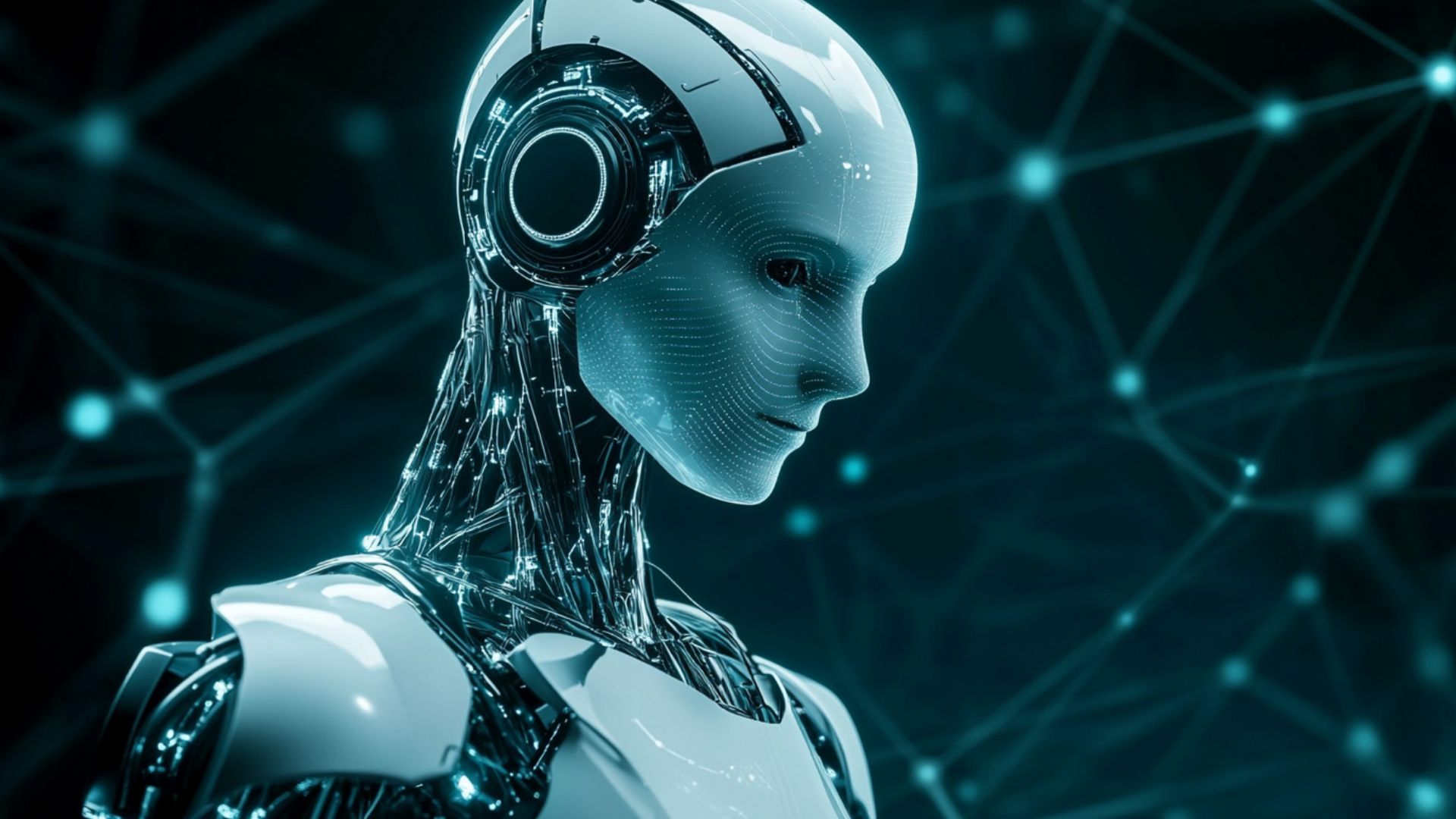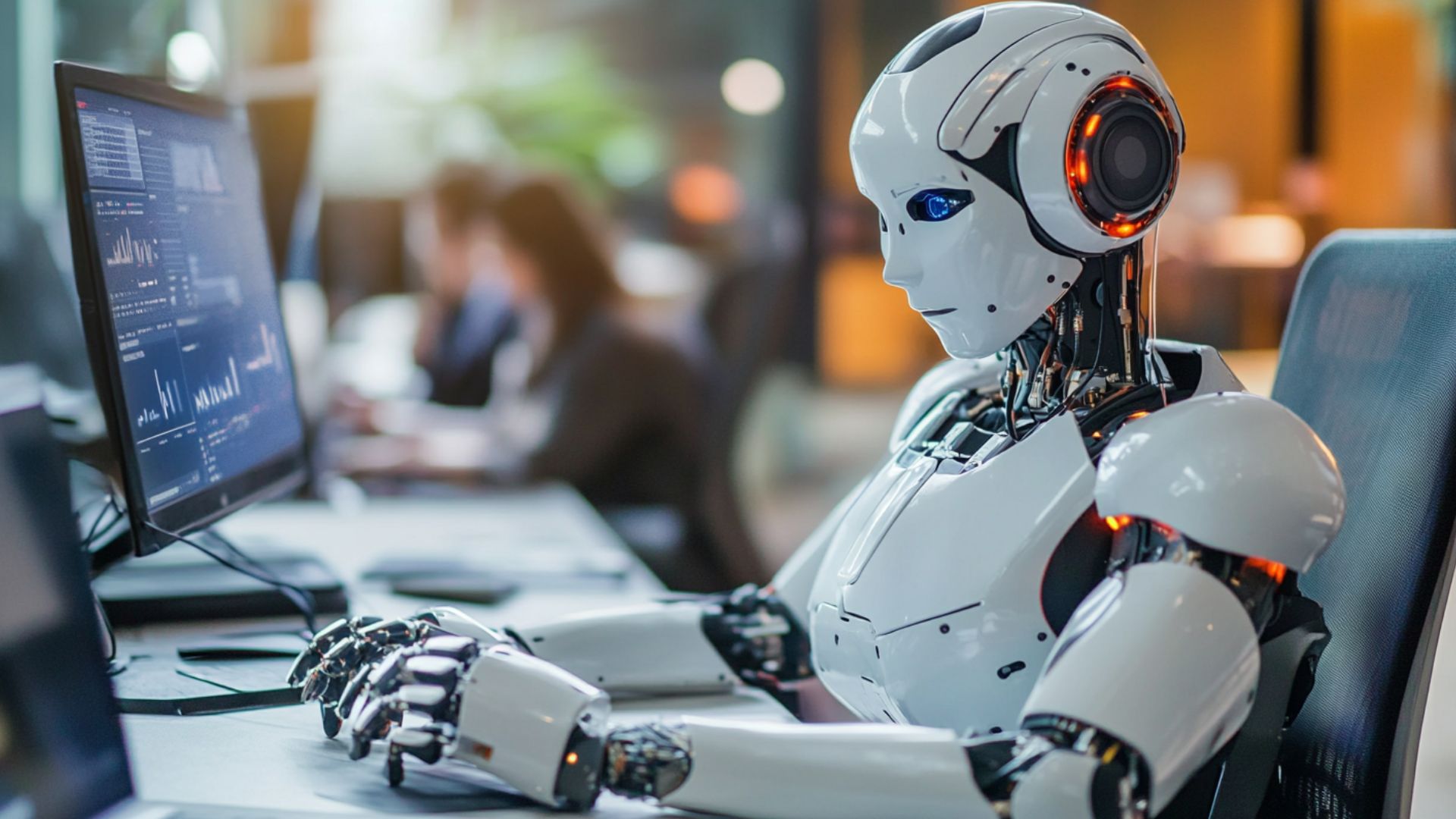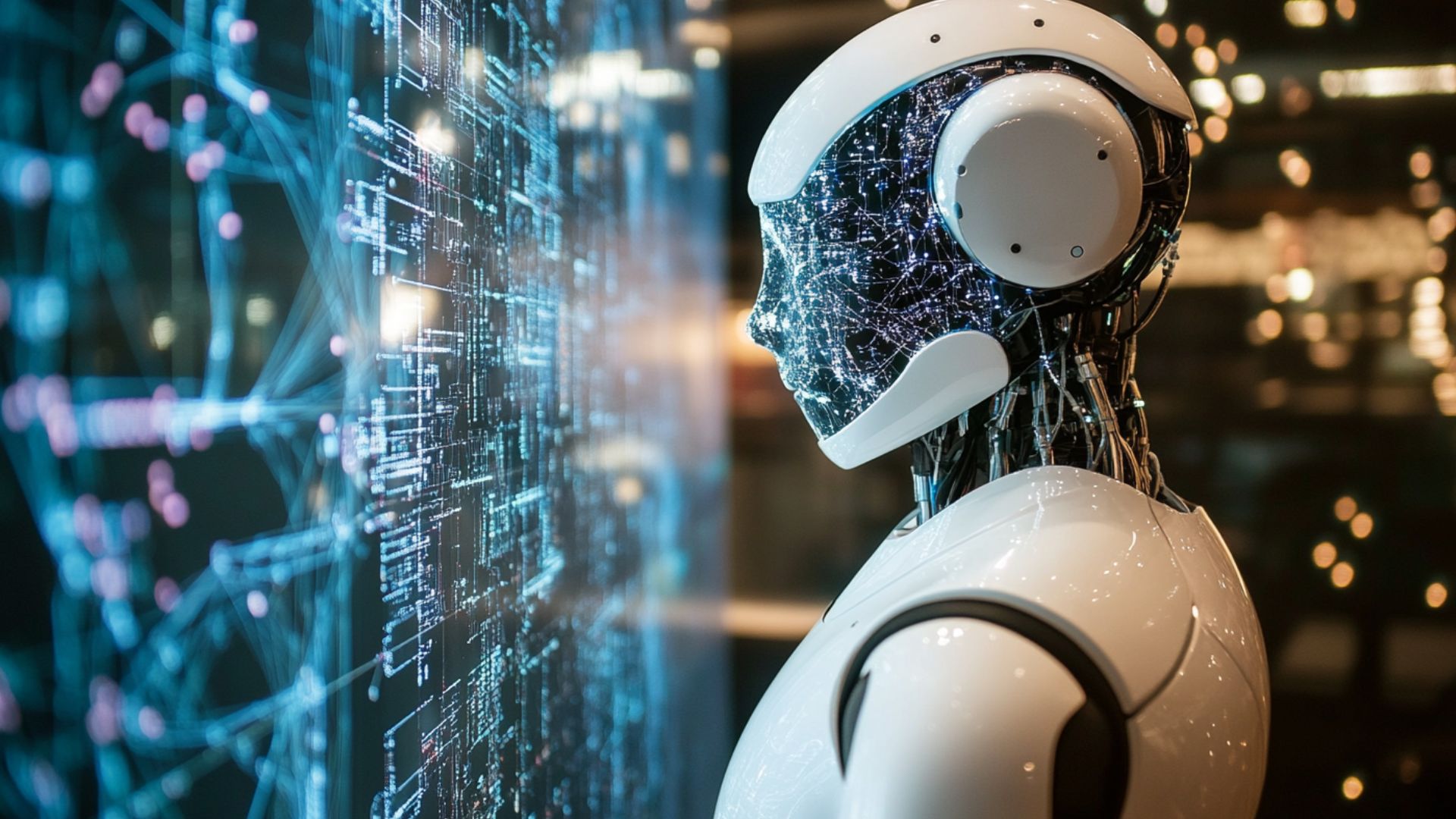Intelligent chatbots for business: how AI can improve customer service and sales

The growing number of seniors worldwide presents a significant challenge for med systems. Life expectancy increases. So, the demand for effective and compassionate solutions is rapidly rising. Usual methods are often inadequate to meet the complex needs of elderly populations. It leads to a search for innovative approaches.
AI in eldercare has emerged as promising technology to revolutionize the med industry. It's particularly important. These advanced technologies offer the potential to address the challenges associated with aging. For example:
- Chronic diseases.
- Cognitive decline.
- Physical limitations.
AI tools can analyze vast amounts of med data. It’s to find patterns and predict risks. It enables early intervention and personalized care plans. Also, AI tools can monitor vital signs, detect falls, and provide med reminders. It enhances safety and independence for people.
By leveraging the power of robots for elderly care, healthcare providers develop efficient, effective, and compassionate care models. These tools hold the promise of transforming the future of care. It ensures that aging populations receive the support and care they deserve.
How AI is Enhancing Elderly Healthcare
AI is revolutionizing the med industry. It’s particularly in the realm of senior care. With AI, healthcare providers can offer more personalized, efficient, and effective care to people.
One of the most vital applications of robots for the elderly is health monitoring. AI wearables, sensors, and apps can continuously track vital signs. They can detect falls and track activity levels. These tools provide docs with real-time data. It allows for early intervention and prevention of adverse outcomes. For instance, AI tools can detect subtle changes in heart rate or breathing patterns. It indicates potential issues before they escalate.
Predictive analytics is another area where AI is making a substantial impact. By analyzing vast amounts of med data, AI algorithms can identify patterns and predict future risks. This enables healthcare providers to proactively address potential problems and use preventive measures. It improves outcomes for seniors. For example, AI can predict the likelihood of a fall based on factors such as gait patterns, med use, and environmental conditions.
Virtual elder care robots are another emerging area in care where AI is playing a crucial role. AI bots and AI assistants can provide companionship, support, and reminders for meds and daily activities. These tools can help reduce loneliness and isolation among people. Meanwhile, they also improve adherence to treatment plans. Also, AI-driven web care tools can enable remote monitoring of patients. It reduces the need for frequent hospital visits and improves access to care.
AI-Powered Health Monitoring for Seniors
AI tracking tools are transforming the way care is delivered. Wearable tools can continuously track vital signs, detect falls, and track sleep patterns. They provide docs with valuable insights into a senior's state and well-being. It allows for timely intervention if necessary.
Sensors can also be installed in homes to monitor various environmental factors. For example, temperature, humidity, and air quality. This info can help find potential risks. They are falls or exposure to hazardous substances. By combining data from wearables, sensors, and apps, elderly care robot systems provide a comprehensive picture of a senior's state.
One of the significant pros of AI tracking is the ability to enable web care. By tracking signs and detecting issues in real-time, healthcare providers can intervene online. It reduces the need for hospital visits. This can be particularly beneficial for seniors who live independently or have limited mobility.
AI-Driven Virtual Assistants for Elderly Care
Web robots for the elderly are becoming increasingly popular in care. These helpers can provide companionship, support, and reminders for meds and daily activities. For seniors who may feel lonely or isolated, AI assistants can offer a sense of connection and engagement.
AI bots can also provide info and answer questions about various topics, such as health, nutrition, and meds. This can help seniors stay informed and make informed decisions about their health. Also, virtual assistants can help seniors stay connected with their loved ones through voice calls and messaging.
By leveraging virtual robots to help the elderly, docs can offer more personalized care. These tools can help improve mental well-being. They can reduce loneliness and enhance independence. It ultimately improves the quality of life for people.
Robots Transforming Elderly Care

Robots that assist the elderly are playing an increasingly big role in care. They offer innovative solutions to address the challenges faced by aging populations. From helping with daily activities to providing emotional support, they're changing the way seniors get care.
One of the primary pros of care bots is their ability to reduce the burden on healthcare providers. Devices robotize tasks such as cleaning, cooking, and meds control. This way, they can free up docs to focus on providing more personalized and compassionate care. Also, they can help to prevent falls and other accidents. It improves safety for seniors.
Care robots come in a wide variety of forms. It’s from simple assistive devices to more advanced AI for elderly bots. Some help with mobility, while others can provide companionship and emotional support. For example, some tools can help seniors with tasks like getting dressed or using the bathroom. Meanwhile, others can engage in conversations and play games.
Companion Robots for Emotional Support
Companion ones are playing a crucial role in providing emotional support to individuals. These tools can help to reduce loneliness. They improve mental state and boost the overall quality of life.
These robots to help the elderly have advanced AI and sensors that allow them to interact with humans in a natural and engaging way. They can recognize faces, respond to voice commands, and even express emotions. This can help feel less isolated and more connected to the world around them.
Some examples of one of the best AI robots in the world include Paro. It's a therapeutic seal bot that has been shown to reduce stress and anxiety in patients. Another example is Pepper. It’s a humanoid device that can engage in conversations, tell jokes, and even dance.
Robotic Assistants for Daily Tasks
Robot assistants for elderly can help seniors with a wide range of daily tasks. It’s from cleaning and cooking to meds control. This can help to make their lives easier and more independent.
For example, robotic vacuum cleaners can help to keep homes clean without requiring manual labor. Cooking helpers can prepare meals with minimal input from humans. It reduces the risk of accidents and ensures people have access to nutritious food.
Also, helpers can help people with meds control. These tools can remind seniors to take their meds on time and can even dispense the correct dosage. This can help to prevent meds errors and improve adherence to treatment plans.
By automating daily tasks, AI robots for adults can help to create a safer and more comfortable living environment for people. This can help to improve their overall quality of life and reduce the need for institutional care.
The Role of AI and Robotics in Assisted Living Facilities
AI and bots are increasingly being integrated into assisted living facilities. It's to boost care quality, safety, and efficiency. These tools offer innovative solutions. They're to address the challenges faced by aging populations and their healthcare providers.
One of the primary uses of AI and bots in assisted living facilities is fall detection. AI cameras and sensors can monitor residents' movements and detect potential falls in real-time. It allows for immediate intervention and prevention of injuries. Also, companions can provide help with daily living activities. For example, getting dressed or using the bathroom. It reduces the risk of falls and enhances independence.
Automated meds dispensers are another valuable use of AI in assisted living facilities. These smart robots for adults systems can accurately dispense meds at the correct time. It reduces the risk of errors and improves adherence to treatment plans. AI-powered algorithms can also track med usage and alert healthcare providers if there are any inconsistencies.
AI bots are also being used to provide companionship and emotional support to residents. These bots can engage in conversations. They can also play games and even provide therapeutic interventions. For example, deep breathing exercises or meditation. This can help to reduce loneliness, improve mental well-being, and boost the overall quality of life for people.
By leveraging the power of AI and robots who take care of older people, assisted living facilities can create more personalized, efficient, and safe environments for residents. These technologies have the potential to transform the future of care. It will ensure that people receive the highest quality of care and support.
Challenges and Ethical Considerations in AI and Robotics for Elderly Care

AI and robotics in eldercare offer promising solutions. However, their integration also presents several challenges and ethical considerations.
One of the primary challenges is cost. Modern technologies can be expensive to implement and maintain. It potentially limits their accessibility to lower-income individuals and facilities. Also, there may be concerns about:
- The long-term sustainability of these technologies.
- The potential for maintenance costs to escalate over time.
Privacy and data security are also significant concerns. AI systems collect and process large amounts of personal data. It raises questions about data protection and the potential for misuse. Ensuring the confidentiality and security of sensitive info is crucial. It's to protect the privacy of people and build trust in AI technologies.
Another challenge is the potential for robots for elderly care to replace humans. These technologies can augment human care and improve efficiency. However, there is a risk of devaluing the importance of human interaction and emotional connection. It's essential to get a balance between innovation and the preservation of human-centered care.
Ethical considerations also extend to the potential for bias in AI algorithms. The algorithms may be trained on biased data. Then, they may perpetuate discrimination and inequality in the delivery of services. Addressing bias and ensuring fairness in AI systems is crucial. It’s to ensure that all seniors receive equitable care.
Robots for the elderly offer significant potential benefits for people. However, it's essential to address the challenges and ethical considerations. Carefully consider the costs, privacy implications, and ethical implications. Then, you can harness the power of these technologies to improve the quality of life for people. Meanwhile, you will preserve the essential role of human connection and compassion in caregiving.
The Future of AI and Robotics in Elderly Healthcare
The future of AI and robots to help the elderly is promising. There will be advancements in technology paving the way for innovative solutions. Smart homes equipped with AI tools will become increasingly common. They will offer greater independence and safety. These homes can monitor vital signs, detect falls, and control appliances remotely. It will provide a personalized and supportive living environment.
AI med platforms will also play a crucial role in the future of care. These platforms can analyze vast amounts of med data. It's to identify patterns and predict risks. It will enable early intervention and personalized care plans. Also, bots and virtual assistants can provide companionship, support, and reminders for meds and daily activities. It will reduce loneliness and improve mental well-being.
Humanoid bots can be the best AI robots in the world. They're another area of significant development in care. These bots can assist with daily living activities. They can provide companionship and even offer therapeutic interventions. AI and bots continue to advance. So, humanoid solutions are likely to become more sophisticated and capable of performing a wider range of tasks.
In the future, AI will continue to evolve to meet the growing demand for care services. These technologies have the potential to revolutionize the way care is delivered. It will make it more efficient, effective, and personalized. However, it is important to recognize that smart robots for adults are not intended to replace humans. Rather, they can complement our care. It’s by automating tasks, providing support, and enhancing the overall quality of care. By working together, humans and machines can create a more compassionate and effective system of care.
Tired of overwhelming paperwork and repetitive tasks? Discover how our AI bot can boost your clinic operations and improve patient care.
With our cutting-edge technology, you can:
- Automate administrative tasks. Schedule appointments, manage patient records, and send reminders effortlessly.
- Enhance patient engagement. Provide instant answers to common questions and offer personalized recommendations.
- Gain valuable insights. Analyze patient data to identify trends and improve your services.
Don't miss out on this opportunity to save time, reduce errors, and deliver exceptional care. Contact us today to learn more about how our AI chatbot can transform your clinic.


